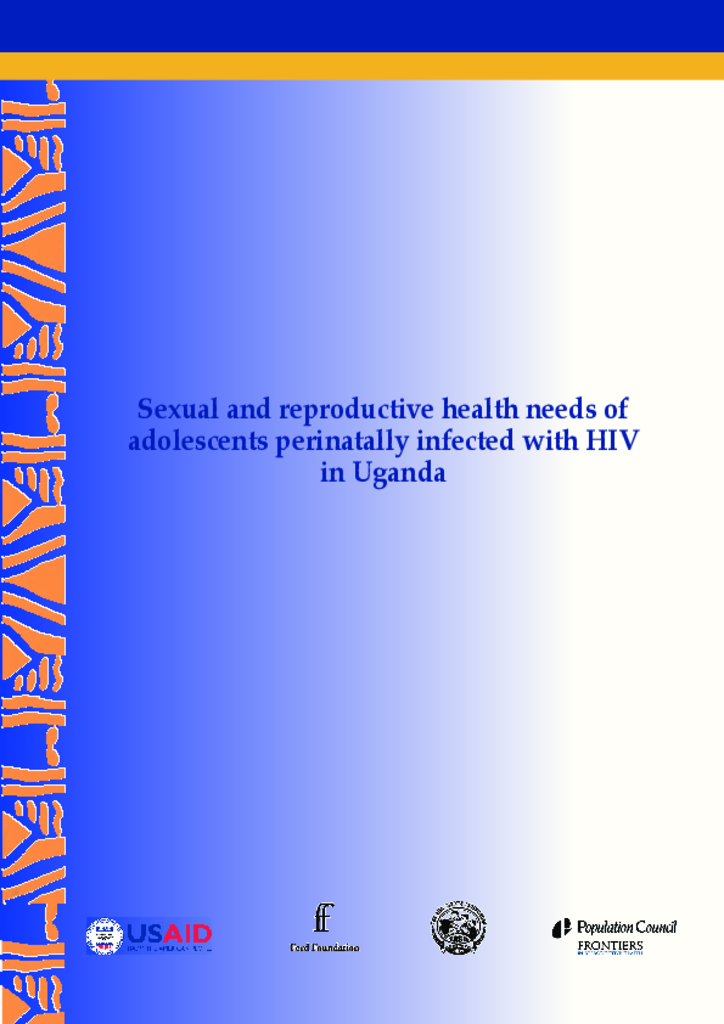
Sexual and reproductive health needs of adolescents prenatally infected with HIV in Uganda
Health Systems
Description
The rapid roll-out of anti-retroviral treatment programs has made it possible for perinatally infected infants to live through adolescence and adulthood, thereby engaging in dating and sexual relationships. However, the sexual and reproductive health needs of this unique and rapidly increasing population are largely unmet. In Uganda, the HIV/AIDS treatment, care and support programs are still organized around either adult or pediatric care and fail to adequately address the needs of this growing segment of the population that usually falls between these two groups. Most programs assume that HIV-infected young people remain asexual. Service providers and counselors usually advise perinatally infected adolescents not to engage in sexual relationships
